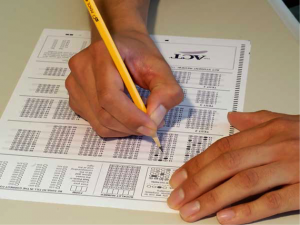Degree Regulations
Students are strongly advised to familiarise themselves with all current University of Manchester ordinances and regulations and policy or guidance documents.
| Masters Degree classification weighted to 120 credits |
Classification thresholds: weighted average (0 to 100) mark range) |
Boundary zone weighted average |
| Pass | 50.0 | |
| Merit | 60.0 | 58.0 to 59.9 |
| Distinction | 70.0 | 68.0 to 69.9 |
Assessments and Examinations

calculating your degree classification, the Board of Examiners consider your GPA (grade point average) for the award of Pass, Merit and Distinction. This is the weighted average of ALL of your course units, except units that are for credit only (BIOL65161). Don't worry if you have had a referral or compensation as these still count towards your credit total for a Pass or Merit. If, however, you have undertaken any referred assessment or been compensated you will not be eligible for a Distinction.
The Board of Examiners meet in May and November. The Board of Examiners normally include Programme Directors and External Examiners from another university. The Board of Examiners will review all the results anonymously and make decisions on the award of credit and who can be referred in exams/ assessment or gain compensation. It is also the role of the Board of Examiners to decide who cannot continue and will leave the University with an exit award. Some students will narrowly miss the threshold for a degree classification and so we look at their pattern of marks (Mark Distribution) and may look at their examined work (Classification Review).
The first examiners' meeting in May will assess your eligibility to complete the final research placement. In November, the Board of Examiners will award final degrees and programme prizes.
Pass marks and Compensation rules
The pass mark for each unit examination is 50% (70% for BIOL65161), and ideally you should pass all the units for which you are registered. However, the examiners realise that not all students will achieve this ideal, and some students may pass most of their units, getting good marks in some but just failing others. If you pass most of your units and only 'just' fail some of them, there may be a possibility of the examination board compensating this failed credit. This means if your mark was between 40-49% at Masters level the examination board is able to compensate up to a maximum of 30 credits. Your transcript of results will show the actual mark achieved (e.g. 47C).
July Referrals
If after the application of the above compensation rules you are found to have failed overall, then you will be required to resit examinations in July. The regulations allow you further attempts of up to half the taught credits, for a standard masters programme as defined by your programme specification, so you can still get back on track. In addition you may also resubmit your Dissertation/Project Reports on one further occasion, subject to the Examination Board's decision; see Section Failed Dissertations and Project Reports.
The Examination Board will then make decisions on your progress and advise you accordingly of the decisions and next steps. Referred assessment at Masters level will be capped at 40% and this is the mark that will be shown on a transcript of results as a 40R; the capped mark is applied to the unit level mark, not just the failed element. It is this mark that will be used to calculate your final degree classification.
If you are on a postgraduate diploma or certificate programme then the overall pass mark will normally be 40%. The same logic for managing reassessment will be applied on these programmes but the mark will be capped at 30R and compensation can be applied for marks between 30-39%. You can be referred in up to half the taught credits on a postgraduate diploma or certificate programme and compensated in up to 30 credits on a postgraduate diploma programme and 15 credits on a the postgraduate certificate programme.
Upon taking the referred assessment, if you fail again the Examination Board will make a decision with regards to your progress. The possible options available may, in exceptional circumstances, include repeating the unit or being awarded an exit award once you've exhausted all the opportunities to retrieve the failed assessment.
Referrals may also be compensated; so if you manage to achieve a mark at referral of between 40-49% at Masters level this may be compensated providing you haven't already used your quota compensatable credit. Compensated referrals will be capped at 40, unless the original mark is higher, and this is the mark (40C) that will show on your transcript of results and be used to calculate your final degree classification.
Again if you are on a postgraduate diploma or certificate programme then the pass mark and compensation mark range will be adjusted according to the lower pass rate.
Failed Dissertations and Project Reports
If you fail your dissertation/project report at the first attempt with a mark of 30 or above, you will be given the opportunity to resubmit a revised version of the dissertation. You will be provided with feedback from your examiners and guidance on the revisions required to bring the work to the appropriate standard for the Masters award. Students achieving a mark of less than 30 for a dissertation will not be permitted to resubmit.
Boundary Zones
A student whose average overall mark falls within 2% below the borders between degree classifications and who have accrued the necessary credits will be considered for the higher award as long as the following are satisfied:
- For the award of distinction, all course units must have been passed at the first attempt without any compensation.
- 120 out of 180 credits are equal to/ or higher than the final award.
The boundary zones are as follows:
| Classification | Classification thresholds: average mark | Boundary zone average |
| Distinction | 70.0 | 68.0 to 69.9 |
| Merit | 60.0 | 58.0 to 59.9 |
PG Diploma and PG Certificate
The PG Diploma and PG Certificate are available for those students who, following reassessment, do not satisfy progression rules listed above but have obtained 120 credits (PGDip) or 60 credits (PGCert) at the pass level of 40% from taught units or a research project.
IMPORTANT NOTE - A student will abide by the University ordinances and regulations which applied at the time of entry to their programme of study; however, changes to University and SBS policy and guidance will apply to all students with immediate effect.
For SBS policy and guidance see the FBMH intranet pages and the programme specific section of this handbook.
Disclosure of marks and record of academic performance
Marks for practical assessments and unit examinations will be made available to you via My Manchester Student Portal; details on how to access them can be found at http://www.studentnet.manchester.ac.uk/crucial-guide/academic-life/exams/results/. Please see Key dates and Deadlines section for the dates the Examination results will be published. Coursework marks may be published on an ongoing basis.
Publication of examination results and degree classifications
Following the Board of Examiners meetings all degree classifications will be published by the date advertised in the front cover of this handbook and will be communicated through the My Manchester Student Portal; details on how to access them can be found at http://www.studentnet.manchester.ac.uk/crucial-guide/academic-life/exams/results/.
Results for individual examinations will be published on the date advertised in the front cover of this handbook (for semester 1 examinations). Practical assessment and other coursework marks may be published on an ongoing basis.
Precise publication dates and times for certain groups of degree programmes may occur before this and full details will be published nearer to the examination boards.
Academic Transcripts
The University has implemented a secure online document service called e-Docs. This system allows graduates to access their documents online and allows employers to verify the authenticity of these electronic documents via a secure website hosted at The University of Manchester. This allows you to manage the release of your documents to a third party, e.g. a prospective employer, electronically, effectively allowing them to verify the information via the University's secure website. This removes the need to entrust your original documents to the post and speeds up the communication process considerably. See the Crucial Guide Live at https://my.manchester.ac.uk/d/crucial-guide/academic-life/award-confirmation/transcripts/ for further information.
External Examiners

External Examiners are individuals from another institution or organisation who monitor the assessment processes of the University to ensure fairness and academic standards. They ensure that assessment and examination procedures have been fairly and properly implemented and that decisions have been made after appropriate deliberation. They also ensure that standards of awards and levels of student performance are at least comparable with those in equivalent higher education institutions.
External Examiners’ reports relating to programmes within the School of Biological Sciences will be shared with student representatives at the Student/Staff Liaison Committee (SSLC), where details of any actions carried out by the School in response to the External Examiners’ comments will be discussed. You should contact your student representatives if you require any further information about External Examiners’ reports or the process for considering them. External Examiners’ reports and the School’s responses to them can be found in the SSLC pages on the intranet.
The External Examiners for each programme are as follows:
| Programme | External Examiner | Institution |
| Anatomical Sciences | Dr Tomasz Cecot | University of Southampton |
| Biochemistry | Dr John Rafferty | University of Sheffield |
| Biology | Dr Richard Bevan | University of Newcastle |
| Biology with Science & Society | Dr Sally Sheard | University of Liverpool |
| Biomedical Sciences | Dr Christopher Torrens | University of Southampton |
| Biomedical Sciences | Prof. Craig Roberts | Strathclyde University |
| Biotechnology | Prof. Jeff Green | University of Sheffield |
| Cell Biology | Prof. David Stephens | University of Bristol |
| Cognitive Neuroscience & Psychology | Prof. Frank Sengpiel | University of Cardiff |
| Developmental Biology | Dr Andrew Fleming | University of Sheffield |
| Genetics | Dr Eran Tauber | University of Leicester |
| Medical Biochemistry | Dr John Rafferty | University of Sheffield |
| Microbiology | Prof. Jeff Green | University of Sheffield |
| MNeuro | Prof. Frank Sengpiel | University of Cardiff |
| Molecular Biology | Dr Eran Tauber | University of Leicester |
| Neuroscience | Prof. Frank Sengpiel | University of Cardiff |
| Pharmacology | Dr Lucia Sivilotti | University College London |
| Pharmacology & Physiology | Dr Lucia Sivilotti | University College London |
| Physiology | Dr Lucia Sivilotti | University College London |
| Plant Sciences | Dr Andrew Fleming | University of Sheffield |
| Zoology | Dr James Usherwood | The Royal Veterinary College |
| MRes Biological Sciences & Integrative Biology, MSc Neuroscience | Prof. Jonathan Jarvis | University of Liverpool |
| MSc Biotechnology & Enterprise, MSc Biochemistry, MSc Plant Sciences | Prof Andy Greenland | NIAB |
| MSc Cancer Research and Molecular Biomedicine, MSc Developmental Biology, MSc Cell Biology | Dr Liz Patton | University of Edinburgh |
| MSc Bioinformatics and Systems Biology, Distance Learning | Dr Andrew Jones | University of Liverpool |
| MSc History of Science, Technology & Medicine | Dr Sally Sheard | University of Liverpool |
| MSc Applications in Environmental Sciences | Prof. Richard Handy | University of Plymouth |
Graduation
Degree ceremonies are held in December and July each year and these are organised by the Student Services Centre. You will receive information about the graduation ceremony at the time that your degree result is notified to you.
Students can normally expect to graduate in December following the final examination board results. Occasionally, the examination process can be delayed for one reason or another. In certain cases, December graduation may not be possible, in which case students may have to graduate at the next ceremony in July. This may be the case if you are required to re-submit your dissertation/project report(s) for further examination.


